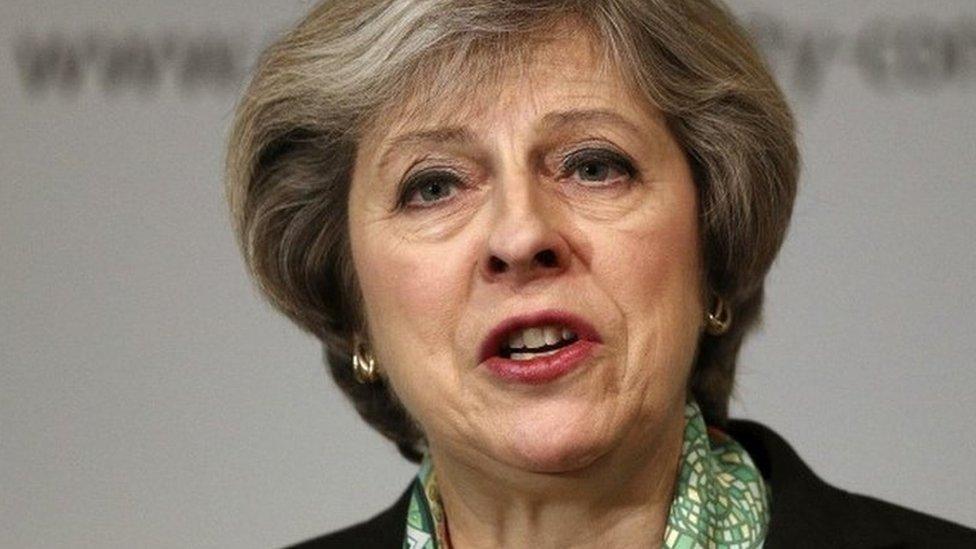Theresa May used 'well-established' blind trust mechanism
- Published

Theresa May used a "well-established mechanism" in setting up a blind trust to manage her financial interests on becoming PM, Downing Street has said.
Under the arrangement, ministers avoid conflicts of interest with government work, but do not have to reveal their investments in full.
Labour and the Lib Dems said the public had a "legitimate interest" in knowing what companies Mrs May had shares in.
But Number 10 said the trust reflected the PM taking on "wider duties".
Mrs May set up the arrangement when she became prime minister last summer, after serving in the cabinet for six years as home secretary.
'Not involved'
The arrangement was revealed in the Cabinet Office list of ministers' interests, external published last month.
In placing shares in blind trusts, ministers have no knowledge of how their investment is being handled, to avoid any potential conflict of interest. It also means they do not have to reveal their investments in full in the list of ministerial interests.
Six other ministers hold shares managed by blind trusts. They are: Solicitor General Robert Buckland; business minister Baroness Neville-Rolfe; defence minister Earl Howe; education minister Lord Nash; health minister Philip Dunne; and Advocate General for Scotland Lord Keen of Elie.
A Number 10 spokeswoman said: "Blind trusts are a well-established mechanism for protecting ministers in the handling of their interests, as they are not involved in any decisions on the management, acquisition or disposal of items in the trust. She set it up when she became prime minister."
The spokeswoman said Mrs May had not needed a blind trust while home secretary, but now had a "far wider set of public duties".
'Full and proper transparency'
But Labour shadow cabinet minister Andrew Gwynne has called on Mrs May to disclose what she had put into the blind trust in the interests of transparency.
Mr Gwynne said if Mrs May had "nothing to hide", she needed to reveal her "existing financial interests".
"In not being able to scrutinise the prime minister's financial affairs it's not possible to know if they present a conflict of interest with her government responsibilities," Mr Gwynne added.
"The British people deserve full and proper transparency so they can make their own minds up on whether their politicians are acting in the nation's interest, rather than their own."
Liberal Democrat leader Tim Farron echoed this sentiment.
He said: "I'm sure the prime minister has nothing to hide but the public has a legitimate interest in what companies she invested in and who runs the trust.
"Theresa May promised the most transparent government in the world. This is an early test to see if her deeds match her words."
Mrs May's husband Philip is a former City fund manager but has worked as a a relationship manager for Capital Group since 2005. When Mrs May became PM in July the company issued a statement saying his job was to make sure clients were happy with its service, adding: "He is not involved with, and doesn't manage, money and is not a portfolio manager."